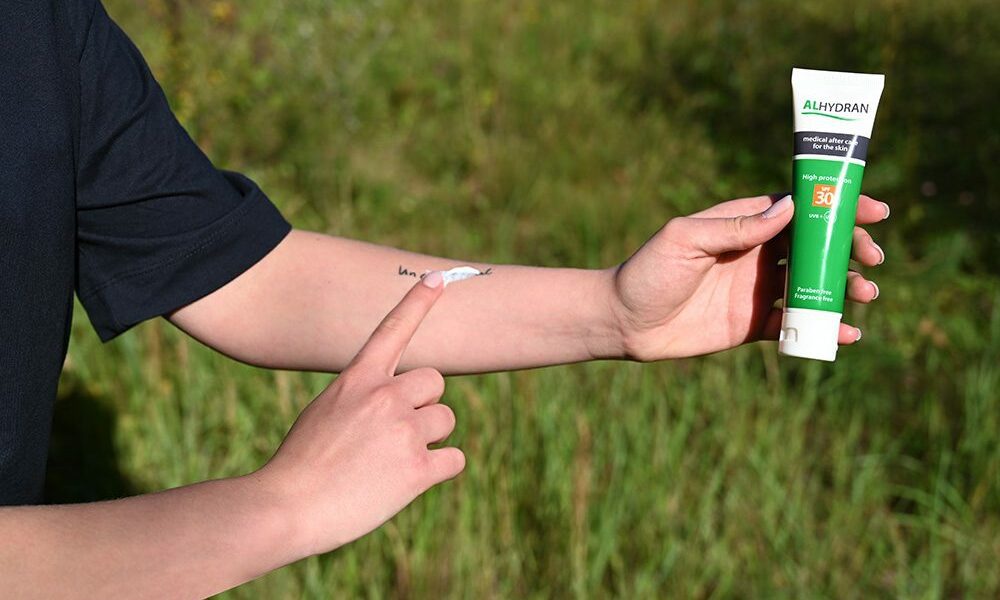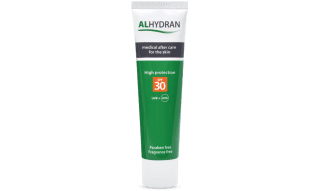How ALHYDRAN works as a tattoo aftercare cream
Proper aftercare is important to support the healing of your new tattoo. To ensure your tattoo heals well, you’ll need to use a suitable aftercare skin cream or ointment and there are a few things to avoid during the first few weeks. This blog explains which cream to use and when it’s safe to end your tattoo aftercare routine.
Initial care for your tattoo and healing skin
After your tattoo is complete, it will be covered with foil or a second skin film, depending on your artist’s preference. You can usually remove the foil after a few hours and this is when aftercare begins. It’s important to keep the tattoo clean, as it’s essentially a type of abrasion. Avoid wearing tight or fluffy clothing over the area to prevent irritation or contamination.
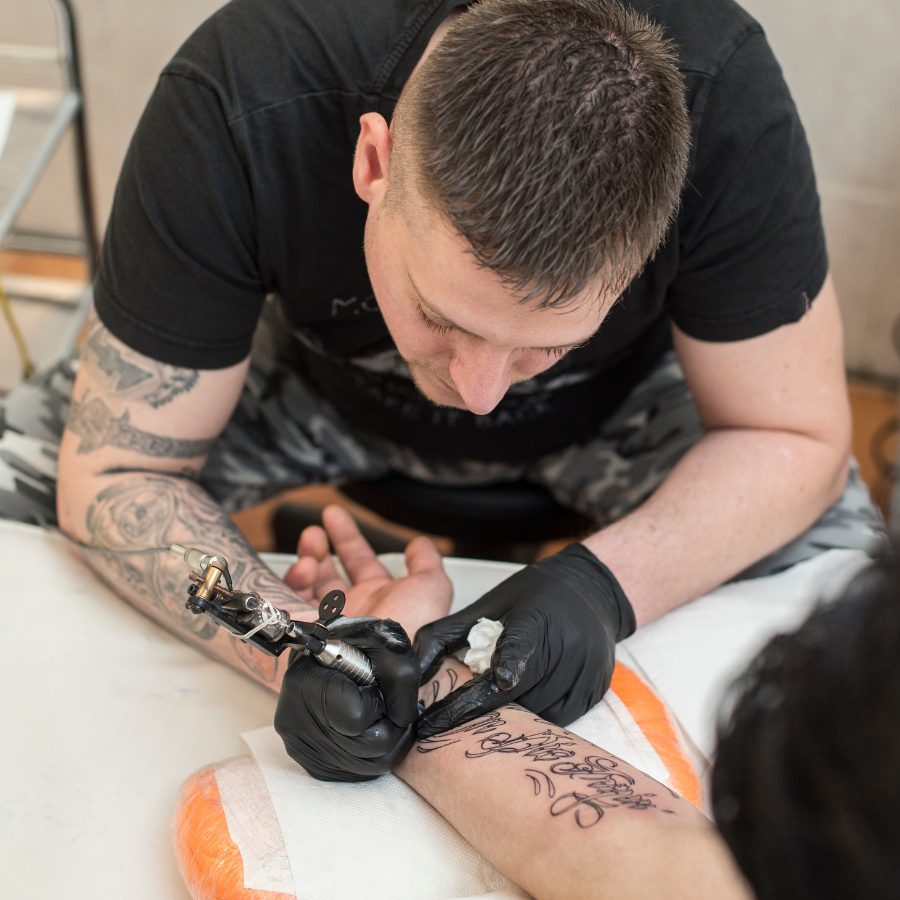
The best way to wash a fresh tattoo
Keeping your new tattoo clean is very important. You will probably use a special soap or washing gel for this. You must use a neutral soap without perfume. Your tattoo artist will probably recommend a product. You’ll typically need to wash your tattoo two to three times a day. If it gets dirty, make sure to clean it again right away.
Apply special tattoo ointment or cream
While your tattoo is still healing (with scabs or open skin), apply only ointments or creams specifically recommended for tattoo aftercare. Your tattoo artist will usually suggest applying it two to three times daily, often immediately after washing the area.
Avoid the sun and prevent infections
To protect your tattoo during the healing period, avoid direct sunlight, swimming, hot baths, or saunas for the first few weeks. Physical activity should also be limited, as sweat and friction can interfere with healing.

Keep your tattoo out of the sun
Do not apply sunscreen to a fresh tattoo. Until the skin has fully healed, it’s best to cover the tattoo when going outdoors. Sun exposure may lead to fading over time, particularly for coloured tattoos.
How long should you avoid exercise after getting a tattoo?
It’s generally advised to avoid exercise for about a week. Physical activity raises body temperature and opens the pores, which can increase infection risk and cause ink to leak from the healing tattoo.
How long are you not allowed to swim, have a bath or go to the sauna?
Avoid these activities for 4–6 weeks after getting a tattoo. Prolonged moisture softens the skin, potentially removing scabs too early and disrupting healing. Natural waters can introduce bacteria, and chlorinated pools or high heat from saunas may also interfere with ink retention.
Has your skin healed? Tattoo aftercare isn’t over yet
Once scabs fall off and the skin appears closed, your tattoo may look healed – but the skin is still recovering. It remains vulnerable for several weeks, so continued care is important.
Continue to care for your vulnerable skin
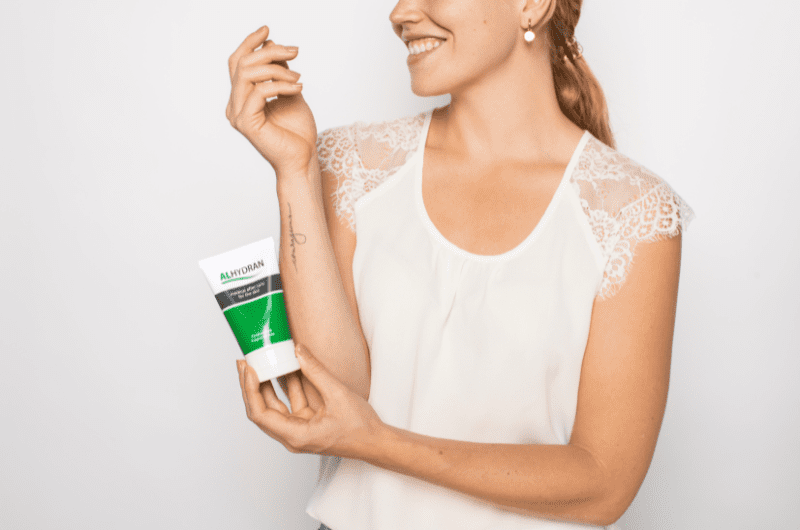
After the wound has closed, switch to a tattoo aftercare cream that nourishes and protects.
ALHYDRAN is a medical aftercare cream developed for sensitive and recovering skin. It provides deep hydration and supports the skin’s moisture barrier, ideal for easing dryness and discomfort around tattoos.
It absorbs quickly, doesn’t stain clothing, and is suitable for use under clothes. Only apply to fully healed skin, never on open wounds or scabs.
Keep applying SPF to protect and preserve your tattoo
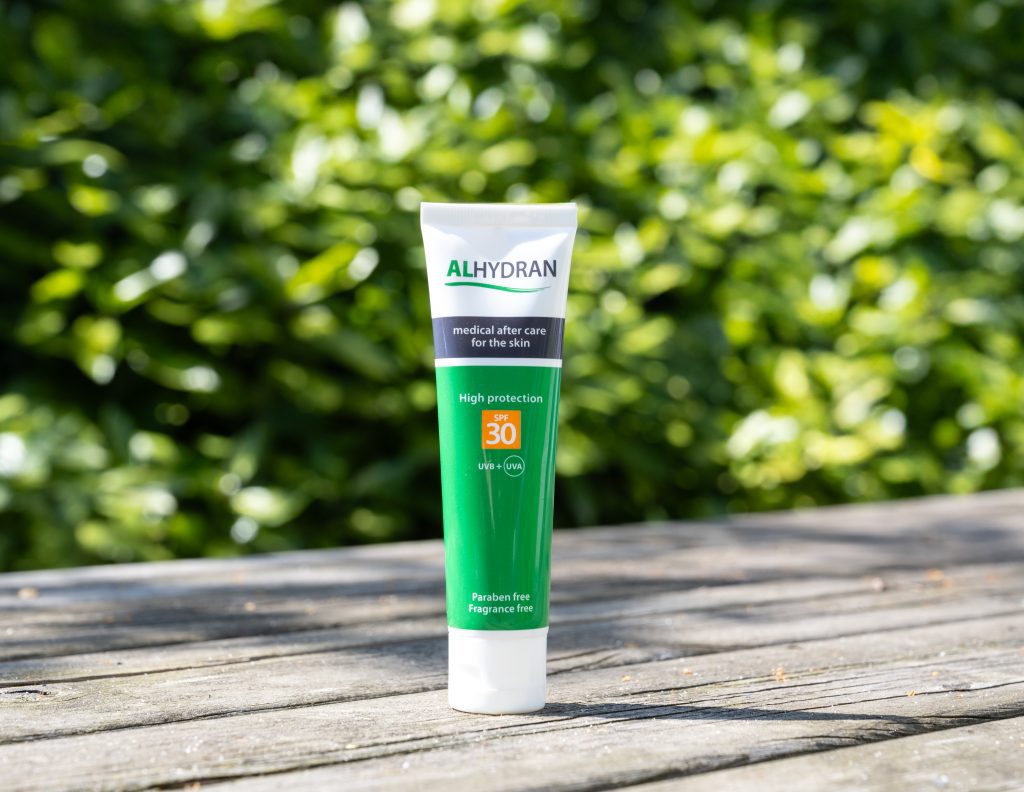
Tattoos fade over time due to exposure to UV light, especially the colours, which are particularly sensitive to sunlight. That’s why it’s essential to keep applying SPF, not only during the first few weeks but for as long as you want your tattoo to look its best. This applies even on cloudy days or when the sun doesn’t feel strong.
Use a moisturising cream with at least SPF 30, such as ALHYDRAN with SPF 30, to maintain hydration and shield your tattoo from the sun. This applies even on cloudy days or when the sunlight doesn’t feel strong.
FAQ
When should you contact your doctor or tattoo artist?
If your tattoo doesn’t heal within a week, shows signs of infection, or you’re unsure about its progress, contact your GP or tattoo artist. It’s always best to ask if you have any concerns.
